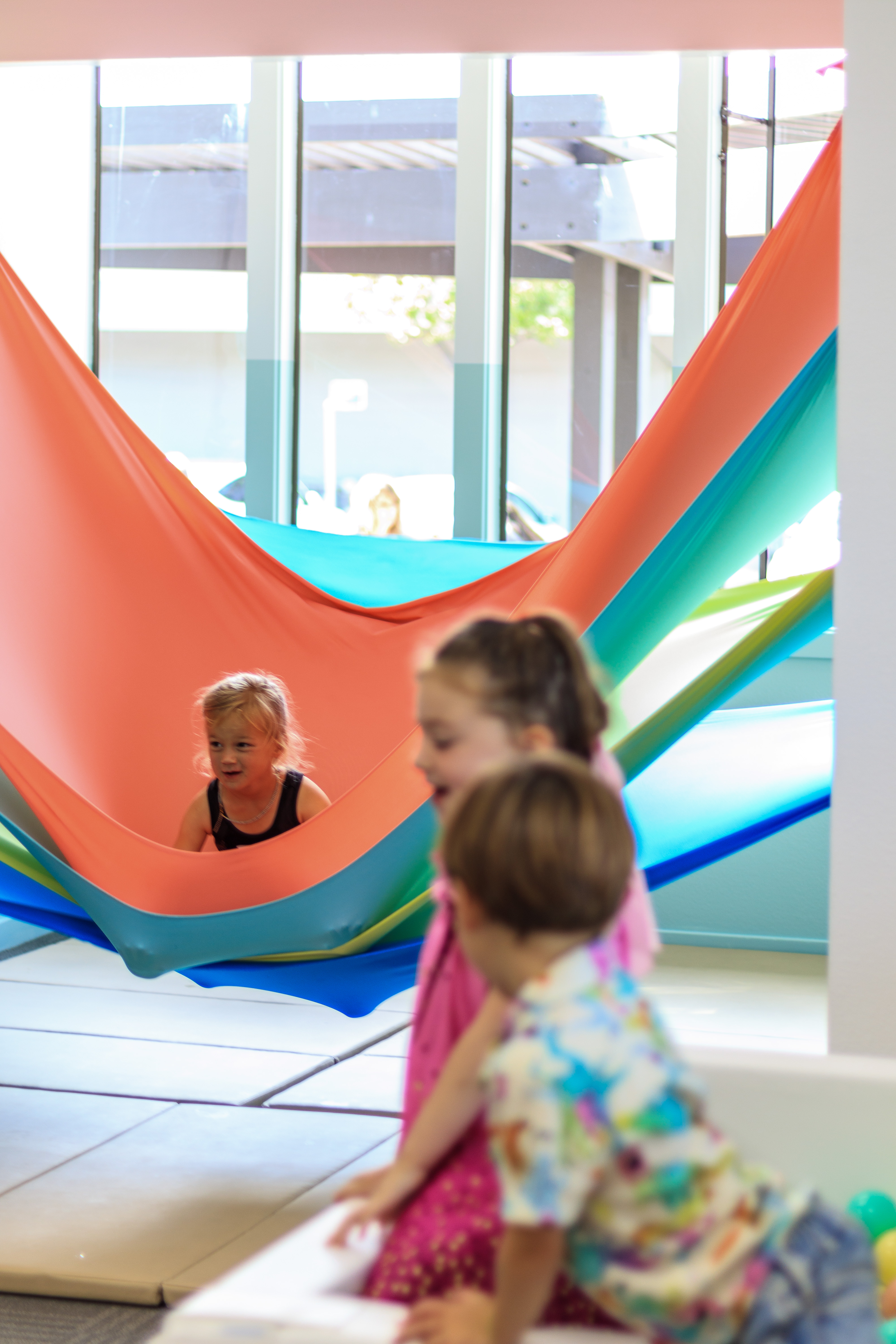A pediatric OT’s guide to supporting growth, regulation, and confidence through play

Summer brings sunshine, slower mornings, and long stretches of unstructured time—a welcome pause from the busy pace of the school year. But it’s also a valuable opportunity to support your child’s development in meaningful, low-pressure ways.
Whether your child is starting preschool, transitioning to a new grade, or continuing to grow in their own unique rhythm, these simple, play-based strategies can help support their regulation, confidence, and independence—all while honoring who they are.
1. Prioritize Movement—It Builds the Brain
Movement is one of the most powerful ways to support a child’s brain-body connection. It’s not just about “getting energy out”—it’s about building strength, balance, coordination, and body awareness in ways that feel good and fun.
When children move—climbing, crawling, rolling, jumping, spinning—they engage their vestibular system (which helps with balance and spatial awareness) and their proprioceptive system (which gives feedback from muscles and joints to help them understand where their body is in space). These systems are foundational for everything from focus and coordination to self-regulation.
What you can try:
- Crawling through tunnels or under couch cushions
- Rolling down a grassy hill or across a blanket
- Swinging, climbing, or spinning at the playground
- Jumping between stepping stones
- Doing yoga animal poses or silly movement games indoors
There’s no “right” way to move—follow your child’s interests and comfort level, and invite play that feels joyful.
2. Feed Their Senses—It Fuels Regulation
All children process the world through their senses—but how they take in and respond to sensory input can vary widely. Some children seek big sensory input like deep pressure or fast movement. Others are more sensitive and may need gentler, slower-paced experiences to feel comfortable.
Providing a range of sensory opportunities allows children to explore and regulate in ways that match their nervous system. These experiences support everything from emotional regulation and attention to motor skills and communication.
What you can try:
- Water play: pouring, scooping, bubble play, or water balloons
- Messy play: finger paint, slime, shaving cream, or sandbox digging
- Nature play: walking barefoot on grass, picking flowers, listening to birds
- Movement play: swinging, jumping, or climbing
- Oral sensory play: blowing bubbles, sucking smoothies through a straw, crunchy snacks
Tuning in to your child’s responses can help guide what feels supportive for them. There’s no single formula—just a gentle process of learning what helps them feel centered.
3. Build Independence Through Everyday Routines
Summer’s slower rhythm can be the perfect time to support your child’s independence at their own pace. Practicing self-care and daily living skills—like brushing teeth, dressing, or packing a bag—builds executive functioning, motor planning, and confidence.
More importantly, it gives children a sense of capability and ownership over their day.
What you can try:
- Use visual checklists for routines like getting ready or bedtime
- Let your child choose and put on their clothes—even if the outfit is mismatched
- Involve them in snack or lunch prep with safe, simple tasks
- Invite them to zip their own bag or open their own containers (with support if needed)
Every small win builds self-trust, even if progress looks different from one child to the next.
4. Keep a Gentle, Predictable Rhythm
Children thrive on predictability. While summer doesn’t require a rigid schedule, having a consistent rhythm to the day can help kids feel secure and supported.
Predictable routines reduce stress for both kids and parents—especially during transitions or unfamiliar activities. For neurodivergent children in particular, a sense of structure can make daily life feel more manageable and less overwhelming.
What you can try:
- Keep sleep, meal, and play windows generally consistent
- Use visual schedules, songs, or cues to support transitions
- Create “anchor points” in the day (e.g., outside time, snack time, quiet time)
- Start gradually shifting routines before school starts again
Gentle rhythms help the whole family feel more regulated, and can be flexed as needed based on your child’s needs.
5. Support Social Connection—In Ways That Feel Right for Your Child
Social connection matters—but it doesn’t look the same for every child. Some kids seek out group play and thrive on peer interaction. Others may prefer parallel play, one-on-one connections, or simply being near others while doing their own thing. All of these are valid ways to connect.
At Children’s Therapy Center, we believe in supporting each child’s authentic social style. We don’t push kids to engage a certain way—we create safe, low-pressure opportunities to practice being around others while honoring their comfort and autonomy.
What you can try:
- Invite a friend over for a short, structured activity
- Attend a library storytime or music class with familiar routines
- Join a small group designed with sensory and developmental support in mind (like our Mastering Motor Milestones group!)
- Narrate social moments supportively: “I noticed Emma smiled at you when you gave her the toy. That was kind!”
For some kids, watching others play is the first step. For others, shared interests or sensory activities open the door to meaningful interaction. There’s no one-size-fits-all path—what matters is helping your child feel safe, respected, and included.
A Final Note
Summer doesn’t need to be filled with enrichment camps or lesson plans to be meaningful. Supporting your child’s growth can be as simple as following their lead, offering sensory-rich experiences, and finding rhythms that help your family thrive.
At Children’s Therapy Center, we celebrate every child’s unique path. Whether your family is looking for support this summer or just curious about how to build strong developmental foundations, we’re here to help.







